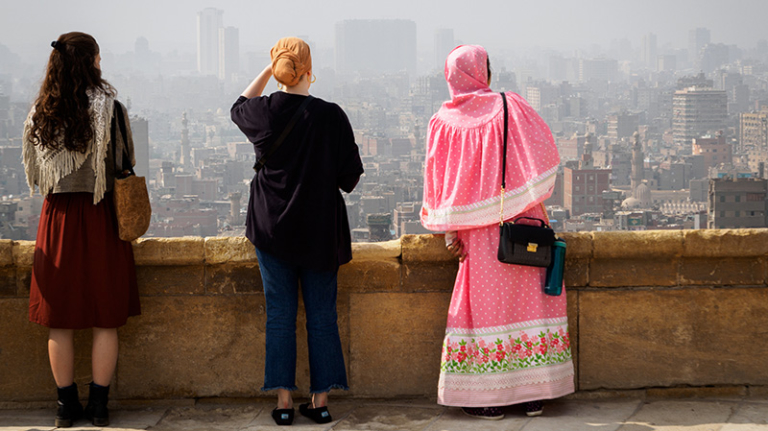
No country in the world has achieved gender equality. The reality is that women are still not able to equally participate in all aspects of social, economic, and political life. In 2021, the World Economic Forum (WEF) estimated that globally we are 136 years away from closing the overall gender gap between women and men. In fact, ground was lost since 2020, when the gap needed 100 years to close. As a result, a whole new generation will have to wait for equality. This is primarily due to setbacks from the COVID-19 pandemic, which has made a significant detrimental impact on women’s rights globally.
There is a lack of women in positions of power, decision-making, and authority. In general, women in senior positions are still ‘firsts’ rather than the norm, and inequality is most visible in this sphere because women are rendered virtually invisible. In fact, WEF’s Global Gender Gap Index reveals that more than 80 countries have never had a woman head of state—and it will take 146 years to attain gender parity in politics.
Gender Inequality in the Arab Region
The Arab world is particularly reflective of these global trends. The region remains the area with the largest overall gap—estimated to be 153 years. According to the above index, the United Arab Emirates is the only Arab country ranked in the top 100 countries approaching equality. Moreover, in the latest Women, Peace and Security Index, four of the bottom ten states are Arab. Conservative ideologies and entrenched patriarchy make it very difficult for women to advance, especially in public life. Some of the greatest barriers are discriminatory laws, gender-based violence, lack of alternative childcare options, unfair wages, unequal division of domestic labor, and the shrinking of civil society space.
Some of the greatest barriers to women’s equality in the Arab region are discriminatory laws, gender-based violence, lack of alternative childcare options, unfair wages, unequal division of domestic labor, and the shrinking of civil society space.
Arab women hold only 17 percent of seats in national parliaments—despite the fact that more than half of the Arab states with representative councils have introduced women’s quota systems. Women in the Arab region were not allowed to vote until the 1950s or 1960s when nationalist regimes embarked on modernization projects following colonial rule. The United Arab Emirates and Saudi Arabia only granted suffrage to their citizens in 2006 and 2011, respectively.
Even though education and educational attainment have improved in Arab states, this accomplishment has not translated into labor force participation. Arab women continue to be marginalized in Arab economies. In fact, in many Arab states, highly educated women are more likely to be unemployed than those with less education. As of 2020, only 18 percent of Arab women participate in the labor market, a figure that is significantly lower than the world average of 46 percent. Low wages for women are a disincentive, and the absence of adequate childcare provision often means that women must give up their professional aspirations in order to raise their children and care for their families. It comes as no surprise then that most unpaid work is done by women, and this has only been exacerbated by the pandemic since 2020. Women in Arab states do almost five times unpaid care work as men—a ratio of disparity that is the highest in the world.
In over 100 countries, laws still exist that restrict the type of work women can do; for instance, needing permission from their husbands before pursuing a job. Nearly 2.4 billion women live in countries with discriminatory economic laws, and women in the region still have only half of the legal rights afforded to men. Women in the Arab world are subjected to discriminatory personal status laws and harsh male guardianship systems. While such laws differ across the region, overall they continue to obstruct gender equality by defining the status of women in society in overly narrow and overwhelmingly patriarchal terms. As a consequence, they are placed at a disadvantage in nearly every aspect of their daily lives, including regulating choices such as marriage, divorce, child custody, freedom of movement, and education. For instance, women in Gulf states must receive the approval of a male guardian to marry while Bahrain, Algeria, Iraq, Kuwait, Syria, and Libya still have a law that allows a rapist to avoid criminal punishment if he marries his victim.
The biggest challenge that women in the region face is gender-based violence. Officially, thirty-seven percent of Arab women have experienced some form of violence in their lifetime, but the real figure is probably much higher.
As long as violence against women exists, all other progress is arguably purposeless. In any state of emergency, women’s rights are the first to be taken away and the last to be restored. This has been much worse in the Arab region because of the widespread patriarchy, chronic insecurity, backlash against fundamental women’s rights, and most recently, the COVID-19 pandemic. Gender-based violence has increased due to the pandemic and women have suffered far greater losses in comparison to men throughout the global health crisis.
Encouraging Signs of Resistance
Women are viewed as less than equal in most places around the world—this is not exclusive to the Arab region. Even though the burden of fighting for equality should not solely rest on them, the sense that women must fight this issue themselves has driven solidarity. Various organizations are supporting young leaders and activists at the regional level, and women are also using social media to coordinate, gleaning inspiration from global movements. New generations of women are pushing for equal rights in non-formal, non-traditional ways and their approach to fighting patriarchal structures is less compromising. They are especially adamant that gender frameworks already put in place by Arab states should work as non-negotiable benchmarks from which to start to improve conditions. Additionally, as Lebanese journalist and activist Hayat Mirshad asserts, “It is not easy trying to advocate for topics unwelcomed by our naturally resistant society; criticism is often aggressive and cynical. Changes associated to our value systems and traditions are even more challenging, and gender issues are often interlinked with religion and politics.”
New generations of women are pushing for equal rights in non-formal, non-traditional ways and their approach to fighting patriarchal structures is less compromising.
Trends of change in Arab countries differ from one to the other regarding challenging inequity and injustice of women’s circumstances. But women throughout the Arab region are making dents in traditional social mores and customs. Syrian entrepreneur and activist Honey Al Sayed recognizes that the determination and vision of the younger generations is not an unobstructed one—institutions, individuals in power, and longstanding cultural norms all reflect a certain ignorance, or unwillingness to accept, the power that young women in the MENA region possess. She states that “local and international political powers and policymakers tend to ignore the power of women and youth in the MENA region, a bountiful power that has not yet been leveraged.”
Recommendations Going Forward
There is irony in the fact that women are charged with fixing the problem of inequality, a problem they did not cause. The bottom line is that gender equality is better for all, and women’s rights are a critical, non-negotiable prerequisite for any peaceful and prosperous future. Arab men must take up the call to be allies and advocates for change. Women in the region have long been fighting on many fronts—in their homes and on the streets—and have been especially vocal and active since the beginning of the 2011 Arab uprisings. Despite increasing backlash and the shrinkage of civic space, Arab women are fighting to expand their opportunities and access their full, long overdue rights.
While the perspectives of Arab women regarding their own positions in society are key determinants of gender equality in a nation, true progress toward equality cannot be achieved without everyone involved. Accordingly, Arab nations must take meaningful steps to address inequality. It is necessary to fully implement the Convention on the Elimination of all Forms of Discrimination Against Women (CEDAW). This includes ensuring that discriminatory cultural practices are terminated and removing reservations that contradict the spirit of the convention. All Arab states have acceded to CEDAW but many have not fully ratified the convention due to strict reservations, mostly related to supposed contradictions with Sharia law. These numerous reservations limit the extent of implementation and undermine the purpose of the Convention.
Women need more permanent positions in spaces of power. The implementation of quotas is a very strong starting point in achieving gender equality in political, economic, and social settings. Tunisia is seen as a pioneer in the Arab region for women’s political participation due to the introduction of a gender quota which resulted in “some of the highest representation of women in legislature compared to any other African or Middle Eastern state.”
This is a starting point; gender quotas in isolation are not enough. The idea that there is strength in numbers falters in the face of decision-making bodies whose foundations are inherently unjust. In other words, the presence of women does not necessarily equate to power for women. As Sara Medini, a political analyst at the Tunisian feminist organization Aswat Nissa, explains in the case of the appointment of Najla Bouden as Tunisia’s first woman prime minister: “[the appointment is] a step forward…But it’s not sufficient. The political programme of the government—her government—must follow egalitarian principles.”
Gender quotas should be introduced and utilized, but in isolation they are not enough. The presence of women does not necessarily equate to power for women.
Gender quotas should be introduced and utilized alongside policies and legislation that are gender balanced. Protections for women must be introduced or strengthened to provide fundamental support. Creating an enabling environment for women can be facilitated through enshrining protective policies into law. Furthermore, providing gender sensitive vocational training programs for all stakeholders could complement protections and policies.
Women should celebrate the progress that has been made so far, yet should not stop creating more progress. There is much more work to do, especially from the perspective of formal institutions. Moreover, sacrificing women’s rights ostensibly on the altar of more pressing issues should not pass for good public policy. As Myriam Sfeir, Director of the Arab Institute for Women at the Lebanese American University, stated to this author, “We are once again being told that ‘it’s not the time’ for women’s rights, as if to say there are more important things. But going backward is not an option.”
Indeed, women should celebrate in solidarity, but this is also a time to renew the fight. The call to action is more urgent now than ever. And the Arab region has no chance of success without fully redressing its existing and deleterious women’s rights deficit.

